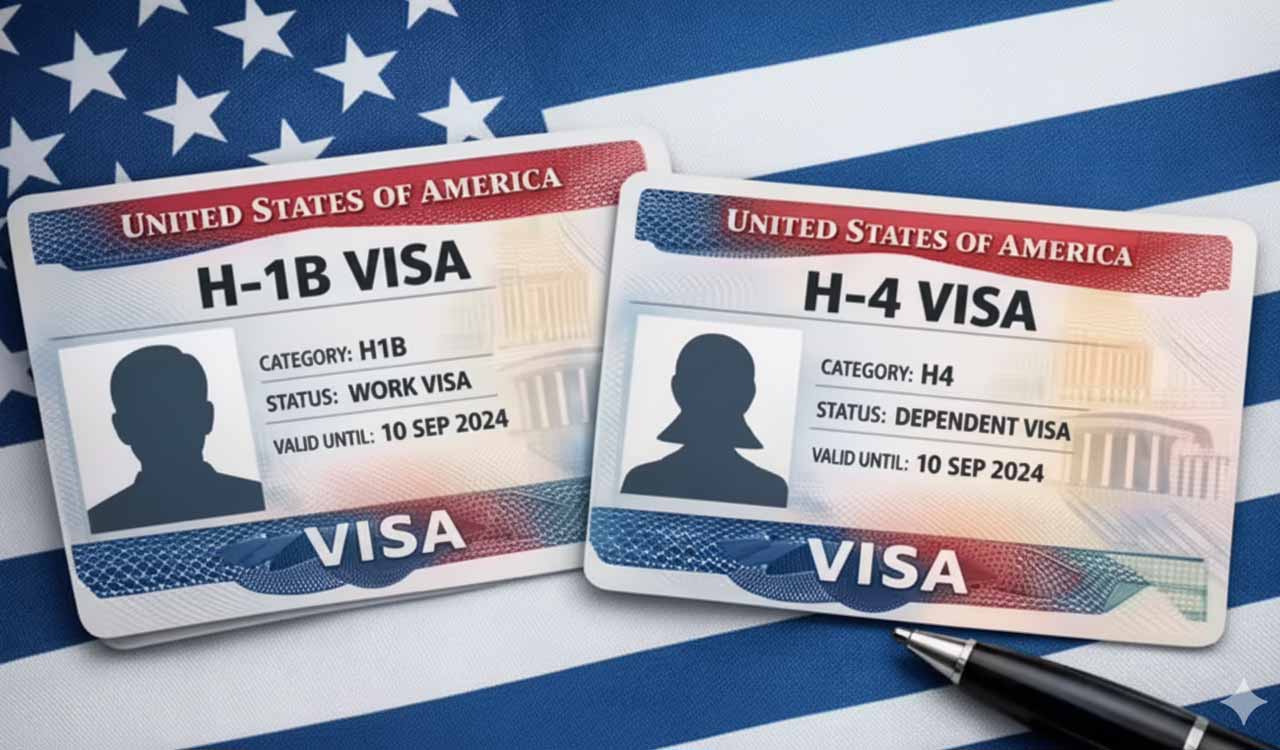Maximizing your education fair experience: Steps to study in the United States
Attending an education fair is an excellent opportunity for students to gather information, network with representatives from various universities, and gain a clearer understanding of their study abroad goals.

Hyderabad: Attending an education fair is an excellent opportunity for students to gather information, network with representatives from various universities, and gain a clearer understanding of their study abroad goals.
However, the true value of these fairs is realized not just in attendance, but in how students use the information they acquire afterward. Here’s a step-by-step guide on what students should do after attending an education fair to further their goal of studying in the United States.
Organize and Review Your Materials:
After the fair, the first thing you should do is organize all the brochures, business cards, and notes you collected. Create a spreadsheet or a document where you can list down the names of the universities, their key programs, deadlines, admission requirements, and any other important details you gathered. This will help you compare different institutions and make informed decisions.
Reflect on Your Conversations:
Think back to the conversations you had with university representatives. Were there any universities or programs that stood out to you? Did you learn something new that changed your perspective or made you reconsider your options? Reflecting on these interactions will help you prioritize which schools to focus on during the next steps.
Follow Up with University Representatives:
If you had meaningful conversations with representatives, it’s essential to follow up with them. Send a polite email thanking them for their time and ask any additional questions you may have thought of after the fair. This not only shows your interest but also keeps you on their radar, which could be beneficial when you apply.
Deep Dive into University Research:
Now that you have a shortlist of potential universities, dive deeper into your research. Visit the official websites of these institutions to learn more about their programs, faculty, campus life, and financial aid options. Pay special attention to admission requirements and deadlines, as these are crucial for your application planning. Also, check for virtual tours or webinars that may provide further insight into what it’s like to study there.
Evaluate Financial Options:
Studying in the United States can be expensive, so it’s important to evaluate your financial options early. Look into the tuition fees of the universities on your list and explore scholarship opportunities, both merit-based and need-based. Some universities might have specific scholarships for international students, so make sure to note those down. It’s also a good time to discuss financing options with your family.
Prepare for Standardized Tests:
Many U.S. universities require standardized test scores such as the SAT, ACT, GRE, or TOEFL/IELTS. After attending the fair, you should have a better idea of which tests are required for the programs you’re interested in. Start preparing for these exams if you haven’t already and register for upcoming test dates to ensure you meet application deadlines.
Start Working on Your Application Materials:
Begin drafting your personal statement or statement of purpose, updating your resume, and gathering letters of recommendation. The sooner you start, the more time you’ll have to revise and improve your materials before submitting them.
Attend Follow-Up Events or Webinars:
Many universities host follow-up events, webinars, or one-on-one meetings after education fairs. These events are an excellent opportunity to ask specific questions and learn more about the application process. Keep an eye out for these events and attend those that are relevant to your interests.
Consult with a Guidance Counselor:
If your school or community has access to a guidance counsellor, make an appointment to discuss your post-fair plans. A counsellor can provide valuable advice on your university choices, application strategy, and next steps. They may also have insights on scholarships or programs you might have missed.
Stay Organized and Meet Deadlines:
Finally, staying organized is key to successfully applying to universities in the United States. Use a calendar to mark important deadlines for each university and create a checklist of tasks to complete. This will help you stay on track and ensure that you don’t miss any critical steps in the application process.
In conclusion, attending an education fair is just the beginning of your journey to studying in the United States. By taking the time to organize your materials, follow up with representatives, and diligently prepare for the application process, you can maximize the benefits of the fair and move closer to achieving your academic goals.
Please visit the U.S.-India Educational Foundation’s website to learn more about studying in the United States: https://www.usief.org.in/Hyderabad.aspx
• Phone/ Whatsapp: 91-8008465712/ 8008462560
• Email: usiefhyderabad@usief.org.in | hyderabad@educationusa.org
Related News
-
India wedded to strategic autonomy: EAM Jaishankar amid US claims on Russian oil buys
-
More trouble brewing for Indians in US; Bill introduced to scrap H-1B visa program
-
Moscow believes it can outsmart US in Ukraine peace talks: Estonia
-
Iran’s top diplomat rejects pressure as US boosts military presence
-
Odisha government reviews protection of Lord Jagannath temple lands
4 hours ago -
Iran holds military drills with Russia as US carrier moves closer
4 hours ago -
This is taxpayers’ money: Supreme Court raps freebies culture
5 hours ago -
Hyderabad: Residents oppose Gandhi Sarovar Project over ‘forcible’ land acquisition
5 hours ago -
Australia level series as Indian women slide to 19-run defeat in second T20I
5 hours ago -
Karnataka beat Uttarakhand in semis, to face Jammu and Kashmir in Ranji final
5 hours ago -
Five Osmania varsity players in South Zone squad for Vizzy Trophy
5 hours ago -
Disciplined West Indies bundle out Italy with ease, tops Group C in T20 WC
5 hours ago



